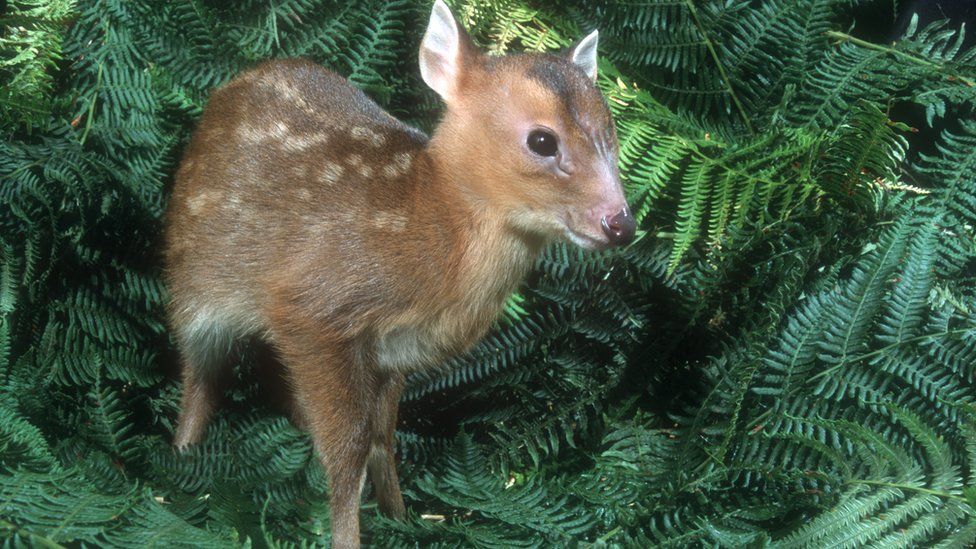New plant list to help deter garden deer
- Published

Wild deer are increasingly being seen in urban areas, with species such as Muntjac and Sika deer expanding their range.
When they stray into gardens they are known to strip flowers and foliage, and nibble tree bark.
The Royal Horticultural Society (RHS) is calling on the public to report damage to garden plants from deer.
They want to produce a new list of plants that appear to be resistant to attack from the wild animals.
Leigh Hunt, principal horticultural advisor at the RHS, said the hope is to get a balance between enjoying seeing wild deer and not having gardens destroyed in the process.
"Deer are more commonly thought to roam rural areas but we're seeing a steady rise in the number of people reporting them in town and city gardens," he said.
"Inquisitive feeders, we're keen to learn how gardeners can minimise and even prevent deer damage through careful selection of plantings."
The RHS first created a list of deer-resistant garden plants in the 1980s, featuring plants such as delphinium, foxglove and rhubarb.
Since then, populations have soared, with deer thought to be more abundant and widespread now than at any time in the past 1,000 years.
Red and Roe deer are the only native species, while Fallow deer are a long-standing naturalised species. Sika deer, Muntjac deer and Chinese Water deer were introduced more recently.
Deer are expanding their range due to milder winters, changes to farming practices and escape from parks and farms.
In the countryside they can damage woodland plants such as oxlip and bluebells, while in towns and cities they can cause road accidents and wreck gardens, allotments and parks.
Cheeky visitors
The RHS says an update to the list will help it to identify new plants that are resistant to different species of deer for the benefit of gardeners.
Lena Cooke, a horticultural adviser at the RHS, has experienced deer problems at her own garden in Farnham in Surrey.
She says Roe deer have taken a liking to her garden, munching on tulips in a pot, feasting on new shoots on camellias and even helping themselves to her entire strawberry crop.
"Several times I had three of them frolicking in the garden, lying on the grass in the sunshine," she said. "They are very gorgeous, graceful animals but not when you are trying to grow things."
She is hoping a new fence with wire on the top will deter the deer, but says she is keeping her fingers crossed.
The survey is available on the deer information page of the RHS website and closes on 1 May.
Follow Helen on Twitter.